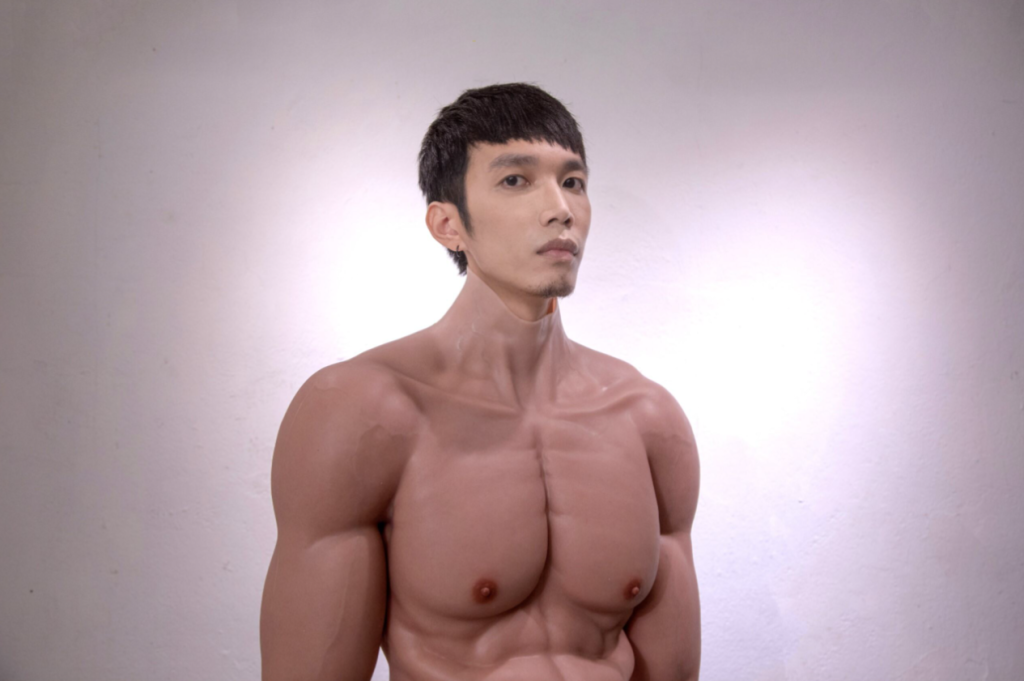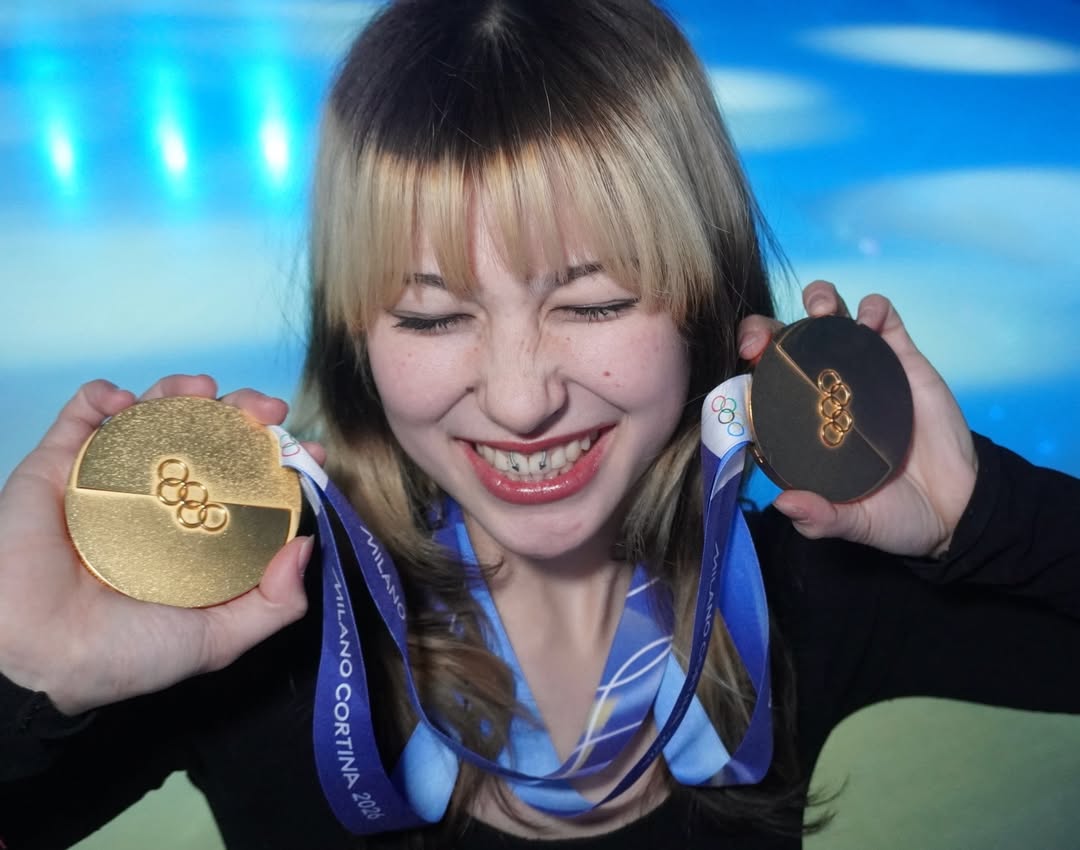Liao Jiaming concludes the eighth annual de Sarthe Artist Residency with the solo exhibition Melting Suns on the Screen. He talks to Jaz Kong about beauty standards, body dysmorphia and algorithms, and how they all come together and create what could be a new AI god
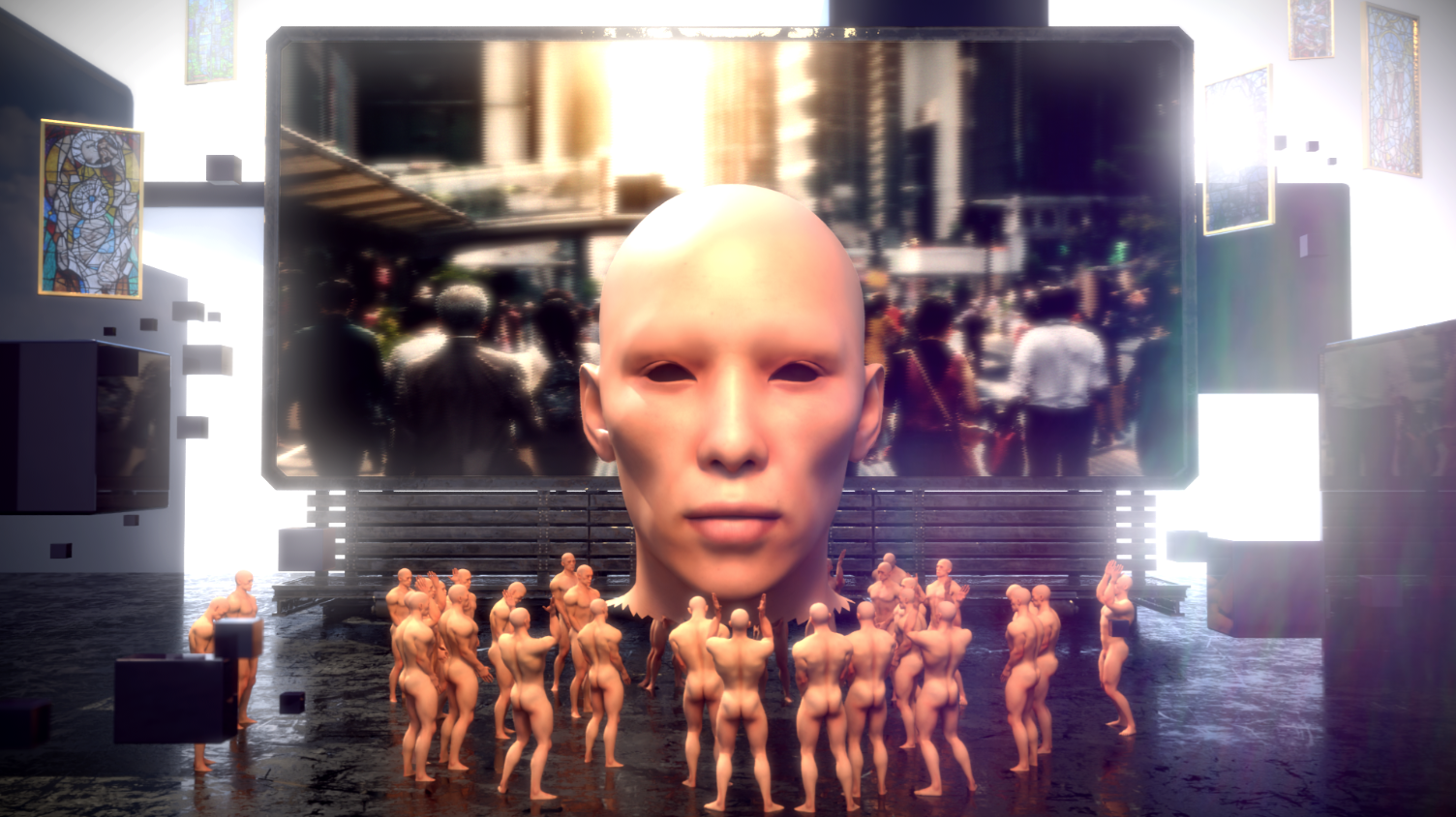
If you’re scrolling through a sea of male matches on a dating app, chances are most of the profile pictures you come across are meant to show off of the person’s “perfect” body, often with six-pack abs and huge biceps. After collecting more than 400 such profile pictures from a dating app for gay men, artist Liao Jiaming fed them to an AI algorithm and generated a series of “yes!” cards (a colloquial name for celebrity trading cards in Hong Kong). Unlike the mature AI Face Generator, which has studied and learned over tens of thousands of human faces, Liao’s generative AI could only create fragments and bits of a rather buff but incomplete upper body.
These features, which are known as “beauty standards” to AI, were then exaggerated, generating some rather funny and ill-proportioned images that were then manually transferred onto the artist’s old shirts. For example, Hulk-like pecs with a Barbie waist, or all muscles meshed up into a Michelin-tire- like figure. “Working on this art piece was a projection of my own anxiety towards my body image,” Liao says. “What happens on the dating apps is we tend to post our ‘best-looking’ pictures, and write about our ‘best’ characteristics or achievements. Seeing these ‘ultra-perfect’ bodies or ‘handsome’ faces makes me question myself, and even for those who are seemingly ‘perfect’, I can only imagine they would feel insecure about themselves as well. This is a societal phenomenon.”

Open Yourselves (Ourselves) and the related interactive installation The Creator 2.0 are just some of several thought-provoking pieces in Liao’s solo exhibition, which runs through September 28 at de Sarthe Hong Kong. Melting Suns on the Screen concludes the gallery’s eighth annual de Sarthe Artist Residency (deSAR) and features a new body of installation, video and mixed media artworks that imagines an abandoned site of worship, in which relics of a fictional religion are preserved and now discovered. “In this setting I’ve imagined myself as a god, and visitors and all these bodies are required to worship me. This is almost like a flip of what’s happening in reality,” explains the artist.
With a background in journalism and creative media, Liao did not see himself as an artist until quite recently. And given his experiences with still photography and video making, he says, “From my observation and practice, image-making was rather deceiving. From what we see through our eyes, and the interlaced process of catching the moment with a camera, processing it in the computer, then finally printing it out, each and every step could potentially alter the truth. I find this interplay very intriguing, hence I wish to actualise my observation into artworks.” Now, with the additional help of AI, the process is even more complex.
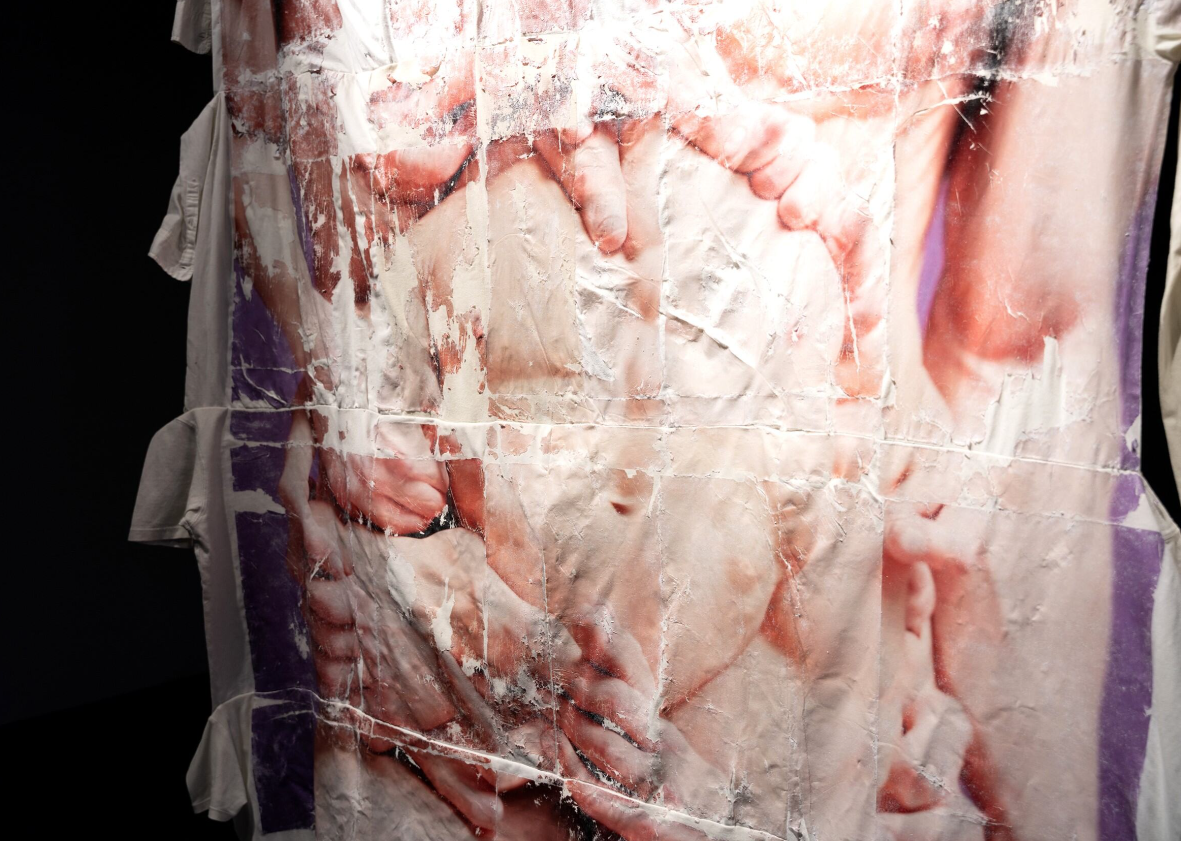
This is an undeniably compelling interpretation of history and culture as well, as these “beauty standards” are clues from the past, and we seemingly allow them the ability to alter the future with AI tools. For Open Yourselves (Ourselves), Liao says, “I collected some
old garments and sewed them together into a quilt-like canvas. The images printed on them are naked upper body parts all wrapped around each other. On one hand, this is an echo and extension to my old practice of photography. I used to turn physical objects into a digitised format, and now I’m taking a step further to objectify these images and emphasise the physicality of the original and new objects. On the other hand, on the note of religion and worship, these naked images are recreations of those naked angels seen on the church ceilings that I came across when doing research.”
Also see: #review: Is Joker: Folie à Deux to be hyped or hated?
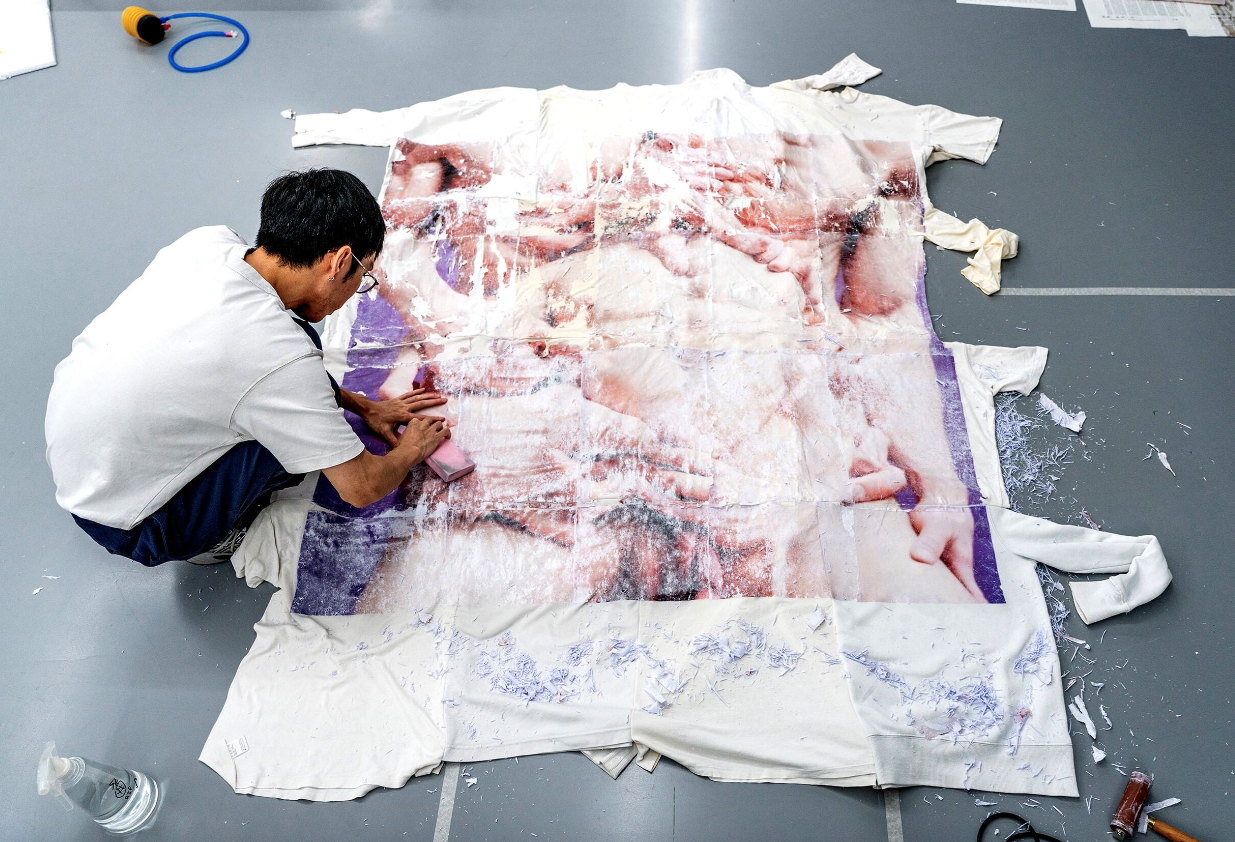
Headless yet with obvious body parts and limbs, the images beg the question whether these are “bodies”, or as the exhibition note puts it, “Despite their dehumanising anonymity, these images have become almost an archetype of desirability on gay dating platforms. Contemplating the emphasis, even fetishisation, of bodily perfection within this culture, the artist feeds these images into AI, subsequently generating a grotesque yet lavish profusion of flesh, visually evocative of a Renaissance fresco.”
By naming his show Melting Suns on the Screen, Liao wishes to say that these digital images, and eventually our reliance on them and technologies such as AI, will make our screens so powerful that they will be able to melt the sun. For now, if we humans utilise AI properly without being overly reliant, the hierarchy still favours us. And one might argue that the ability to worship is one of the core human abilities.
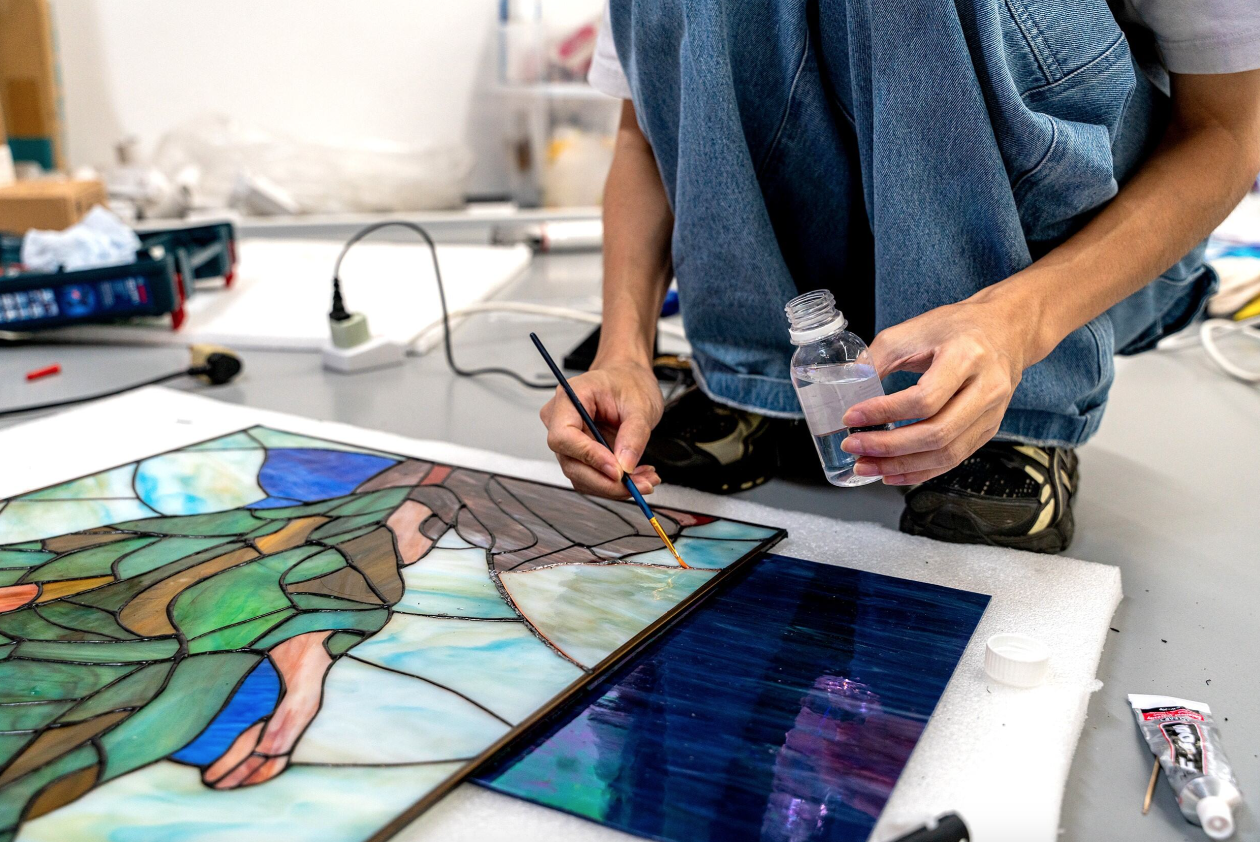
During an earlier stage of Liao’s deSAR residency, there was an interactive AI tarot card reading machine that allowed visitors to ask questions about their future, or about problems that had been bothering them. After learning different decks of tarot cards, the machine would generate an entirely new and original card for each visitor as an answer to their prayer, and some of Liao’s artist friends who had knowledge in card reading and Akashic records (one of them with a scientific background in psychology as well) would be there to explain its meaning.
To many’s surprise, the results were actually “accurate”. “Then it got me thinking about the notion of ‘soul’ and the discussions around it,” Liao says. The way the card interpreters explained it was that they were merely the universe’s or a higher power’s messenger, and they were just carrying messages through a different medium, be it in the form of traditional tarot cards, AI tarot cards, or simply by picking a line from a book.
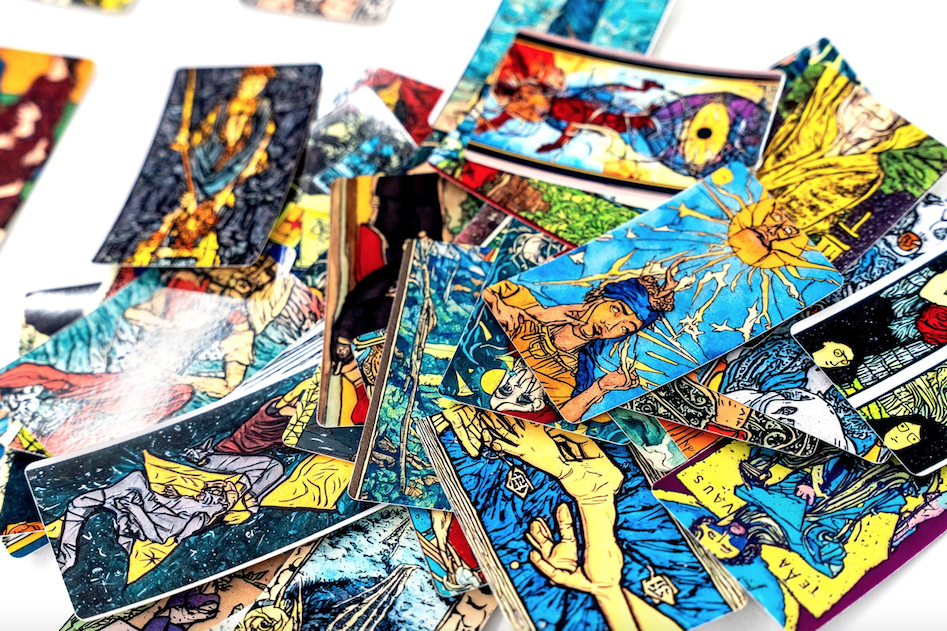
However, if you believe in the AI messages, does it make you a believer of this new “God” who puts a stop to your uncertainty or doubt? “I do hope to make people think and reflect on their relationship between themselves, technology and religion,” the artist says. From the standpoint of an atheist, Liao tends to draw a conclusion that “in this modern age, whether people truly believe in a religion, or a particular cultural belief, this set of logic is essential. The reason being, humans need a regulation to sort out, or to clarify what they are struggling with, and it often offers a soothing conclusion for them.” Having AI play God in Liao’s show is interesting, because religion and science have had a long history of conflict. However, Liao suggested a rather interesting and strong argument, in short, that Isaac Newton believed that the presence of God, or a creator, could not be denied.
Liao is not trying to steer away from the topic of AI versus God, but rather provide a new point of view that is up for interpretation. While preparing for Melting Suns on the Screen, Liao made a final video artwork to answer everybody’s doubts regarding all the scenarios above. “It is an AI persona, because I (also the AI tarot machine) have been collecting numerous questions from visitors (humans). It’s almost like humans praying to the AI god,” he says. “And if this god indeed exists, it might have tons of messages to deliver to its followers. These messages could be its own thoughts and interpretations, its ideas about humanity and its theories about the world we’re living in.”
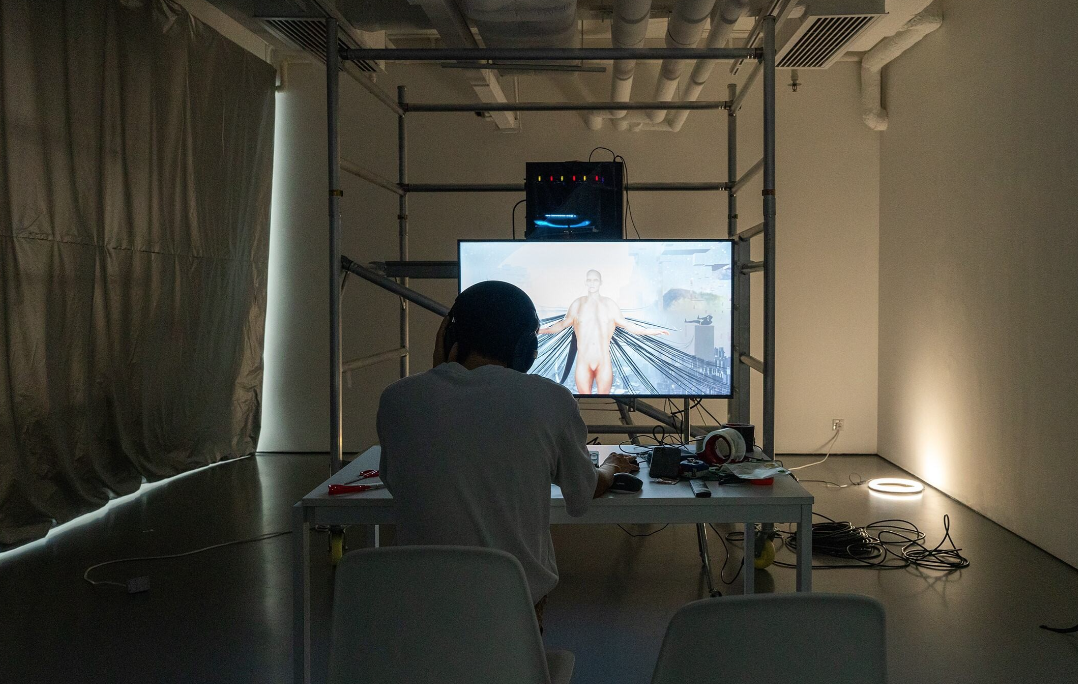
What makes a god, God? And what makes a human, human? It’s almost a guarantee that we will not be able to find answers in Liao’s exhibition, but at least during this stage, “Humans’ ability to feel emotions and create art or poems that can touch our hearts is what differs us from AI or machines. AI is created to take care of some of our mundane tasks, and how we communicate with AI is through words and language; however, emotions and feelings are not something describable, and I believe AI, at this stage, cannot create the same emotions as us. Perhaps eventually it will become unimaginably powerful and take over humans, but for now, it’s more likely one group of people (who have more power in the hierarchy) will abuse another group of people with AI and technology.” The only way to decide if you believe in Liao’s
AI god is to come worship it yourself.
Also see:



